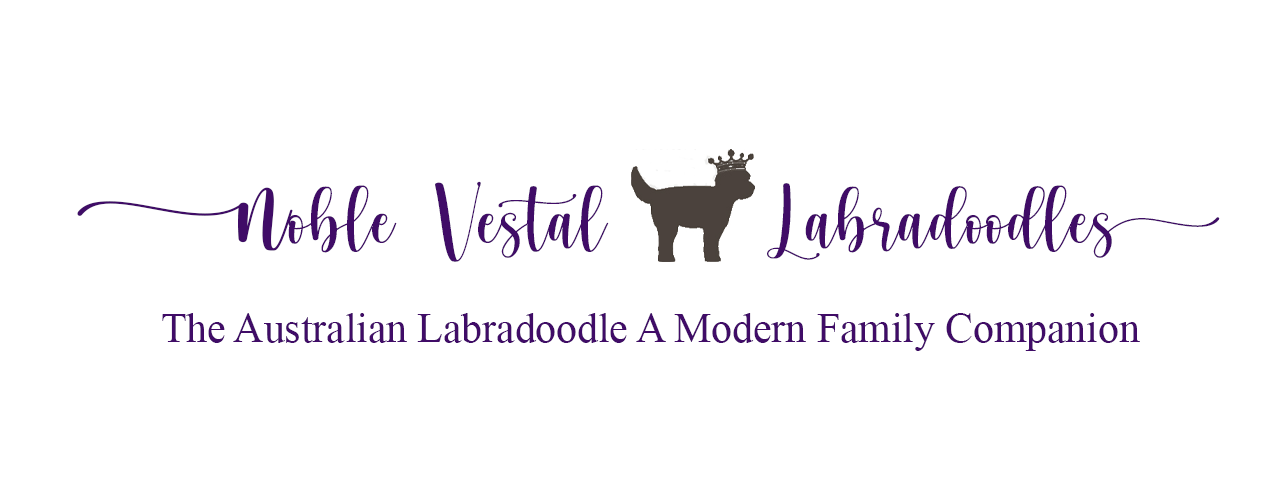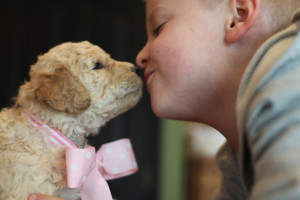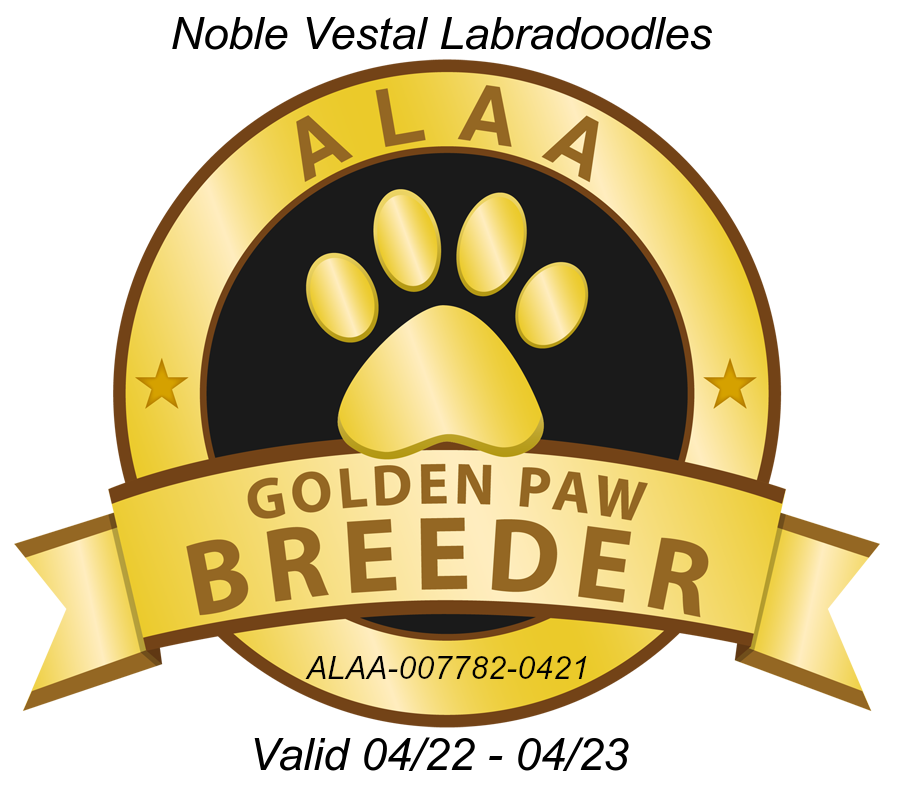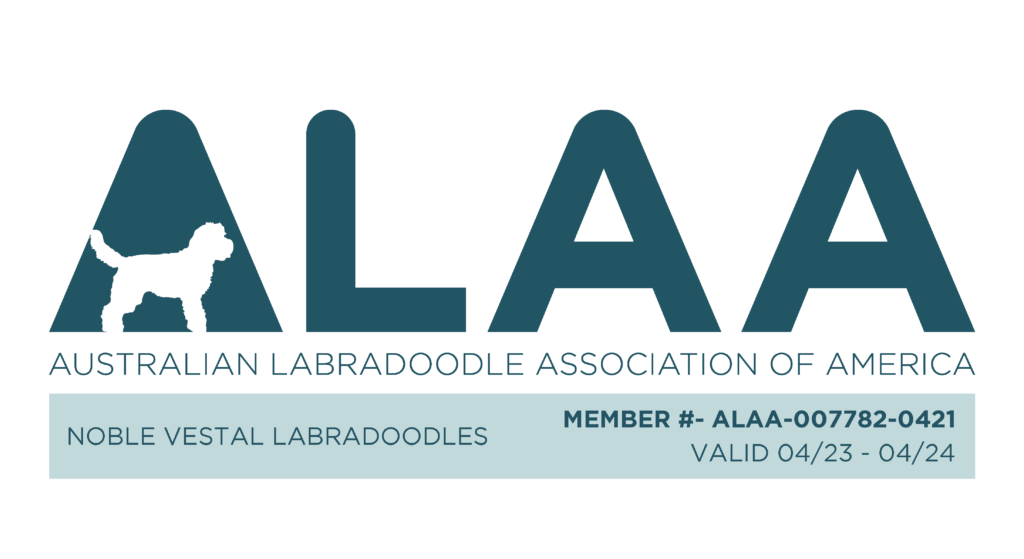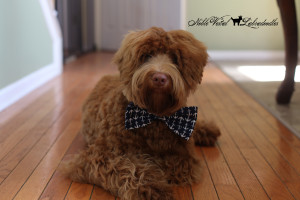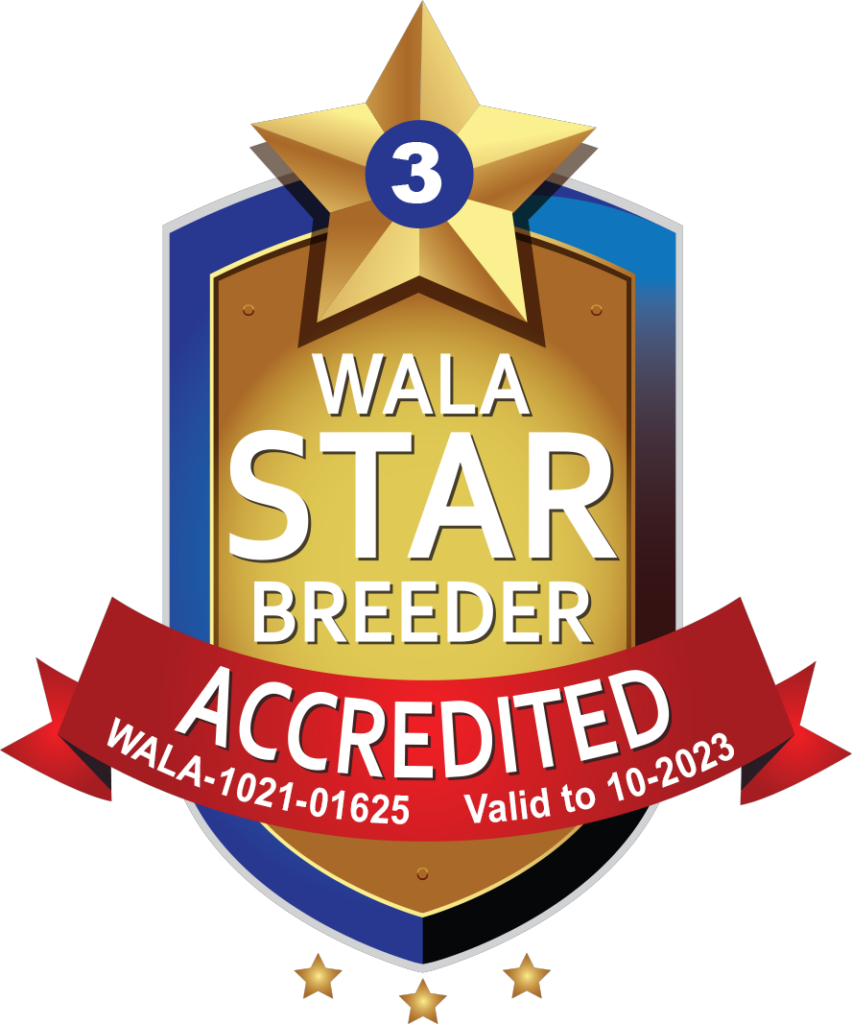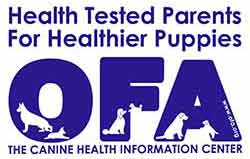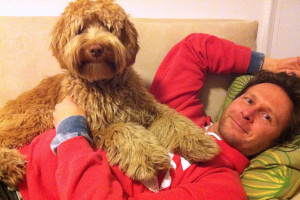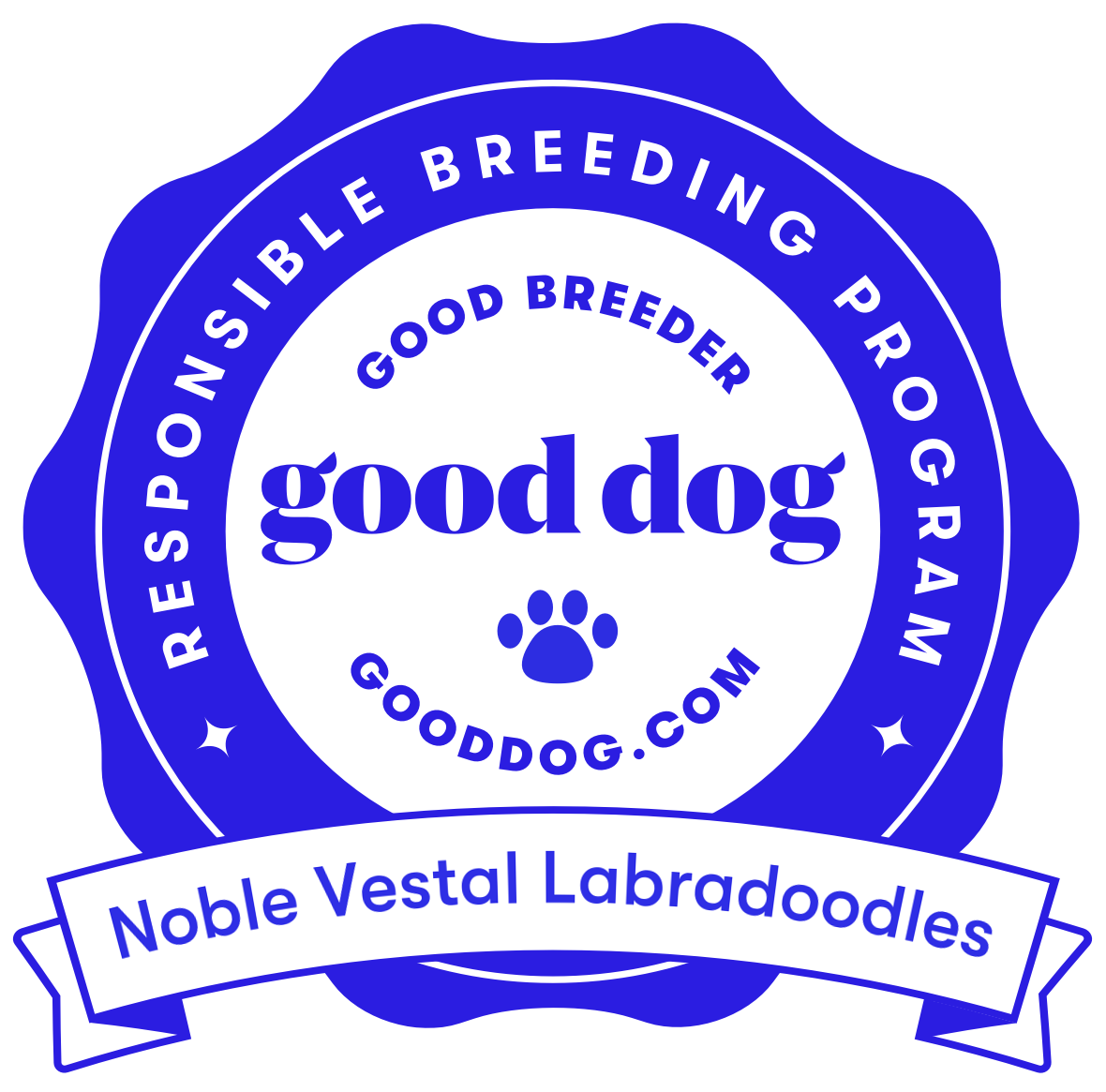You must keep in mind that there are no perfect puppies.
Any puppy you get will need to be trained if you want to live with a well-behaved, friendly and mannerly dog. I can give you a great puppy but it is up to you to make it a great dog. They don’t train themselves.
Our puppies are raised indoors in the middle of our home where they interact with our family, friends and guests not in some secluded backyard or fancy kennel. Puppies raised in kennel-isolation, will have their social and mental development severely stunned and sadly, you will be playing catch-up for the rest of her life. Those puppies will require remedial socialization and training for a long time to come.
By eight weeks of age:
· Our puppies have already have been handled by many people, especially men, children, and strangers
· Your puppy has become thoroughly accustomed to a home physical environment, especially to all sorts of potentially scary noises like the vacuum, dishes, knocking on the door, kids running and playing.
· We start our puppies potty training at 2.5 weeks old. They grow up in a clean environment which helps them with their potty training skills later in life.
· We interact with our puppies daily, they learn that sitting for attention is good. We reward behaviors that are positive. puppies prior to eight weeks of age won’t be taught obedience but when we see behaviors that are good we reward them.
Our puppies have been raised indoors in close contact with people who have devoted lots of time to their education.
If a dog is expected to live in a household with people, obviously she needs to have been raised in a household with people. Your puppy needs to be prepared for the clamor of everyday domestic living: the noise of the vacuum cleaner, pots and pans dropping in the kitchen, football games screaming on the television, children crying, and adults arguing. Exposure to such stimuli while her eyes and ears are still developing allows the puppy (with her blurred vision and muffled hearing) to gradually become accustomed to sights and sounds that might otherwise frighten her when older.
There is not much point in choosing a puppy that has been raised in the relative social isolation of a backyard kennel, basement, barn, or garage, where there is precious little opportunity for interaction with people and where a puppy has become accustomed to soiling her living area and yapping a lot. Puppies raised in physical seclusion and partial social isolation are hardly prepared for household living, and they are certainly not prepared for encounters with children or men. Backyard- and kennel-raised puppies are certainly not pet-quality dogs; they are livestock on par with veal calves and battery hens. Look elsewhere! Look for litters born and raised indoors – in a kitchen or living room.
If you want a companion dog to share your home, she obviously should have been raised in a home, not in a cage or a kennel.
An essential ingredient of puppy husbandry is regular (several times a day) handling, gentling, and calming by a wide variety of people, especially children, men, and strangers. These exercises are especially important during the early weeks and especially with those breeds that are notoriously tricky when handled by strangers – that is, several Asian breeds, plus many herding, working, toy and terrier breeds – in other words, most breeds of dog!
It is so important that dogs enjoy interacting with people and being hugged and handled, especially by children, men, and strangers. Early socialization easily prevents serious adult problems.
If you want a cuddly adult dog, he needs to have been cuddled regularly as a puppy. Certainly, neonatal pups are pretty fragile and helpless critters; they can barely walk and they have a number of sensory constraints. But they still need to be socialized. Neonatal pups are extremely sensitive and impressionable, and this is the very best time to accustom them to being handled. Neonatal puppies may not see or hear very well, but they can smell and feel. Of course, neonatal and early puppy socialization, being of paramount importance, must be done gently and carefully.
The puppy should be fully desensitized to sounds before he is four weeks old. Likewise, his housetraining program should be well underway, his favorite toy should be a chewtoy (stuffed with food), and he should happily and eagerly come, follow, sit, lie down, and roll over when requested. If these are not so, either your puppy is a slow learner or he has had a poor teacher. In either case, look elsewhere.
If You Really Want a Challenge
If you really want to set yourself a housetraining challenge, buy a three-month-old puppy from a kennel or pet store window littered with shredded paper and straw with no specific toilet area. This puppy has been trained to eliminate anywhere, anytime. And that’s exactly what she will do when you get her home. You’ll be cleaning up urine and feces for a very long time!
that have been born and raised in a kitchen or living room.
